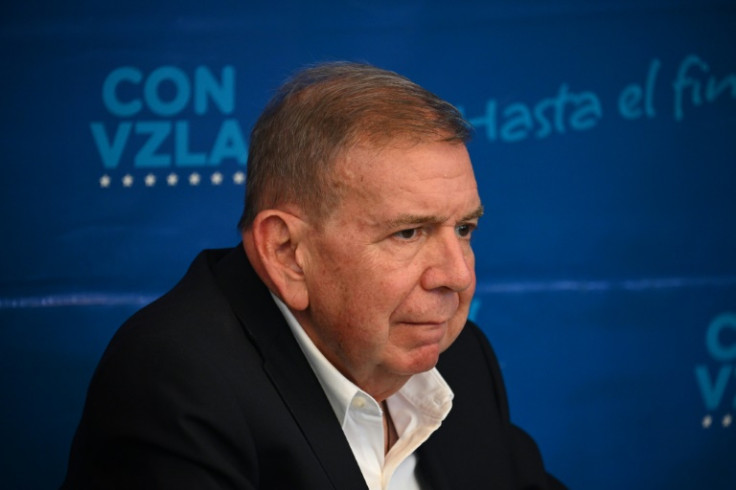Venezuela Opposition Candidate Asks Maduro To 'Step Aside'

Venezuelan opposition presidential candidate Edmundo Gonzalez Urrutia, who has claimed he defeated Nicolas Maduro in last month's election, said Monday he was ready to negotiate a transition -- and asked the incumbent to "step aside."
"Mr. Nicolas Maduro, respect what all Venezuelans have decided... You and your government should step aside... I am ready for dialogue," Gonzalez Urrutia, a retired diplomat, said in a video message posted on social media.
"Every day that you hinder the democratic transition, Venezuelans suffer from a country in crisis, and without freedom. Clinging to power only makes the suffering of our people worse. Our time has come."
Since the contested election, Gonzalez Urrutia and fellow opposition leader Maria Corina Machado -- who was barred from running herself -- have been in hiding as prosecutors have opened an investigation against both of them.
Venezuelan Attorney General Tarek William Saab threatened to formally charge them Monday.
Gonzalez Urrutia has not been seen publicly in weeks, while Machado appeared at an opposition rally in Caracas on Saturday.
Saturday's protest was the latest since the July election, in which Maduro claimed a third, six-year term.
The country's CNE electoral council declared Maduro the victor within hours of polls closing, giving him 52 percent of ballots cast, and ratified the vote in early August. It did not provide a detailed breakdown.
The opposition says its own tally of polling-station-level results showed Gonzalez Urrutia, 74, had won more than two-thirds of the vote.
The CNE claimed to have been the victim of a cyberattack on election night, but the opposition and third-party election observers such as the Carter Center have said there is no evidence such an event occurred.
Maduro's victory claim has been rejected by the United States, the European Union and several Latin American countries.
Election-related protests have claimed 25 lives so far, with nearly 200 injured and 2,400 arrested since election day, according to official sources.
Maduro has accused the opposition of fomenting a coup, telling his supporters on Sunday: "They will never be able to defeat us, because we carry with us the force of history, the force of the nation, the force of God. We won."
Venezuela's national legislature on Tuesday will discuss a bill purportedly "against fascism," the second law in a series of measures prepared by the government in the wake of Maduro's contested reelection.
Last week, the National Assembly of Venezuela adopted a law regarding NGOs which critics say will be used to crack down on dissent.
The government also intends to discuss a law regulating social media, a move following the ban of the platform X for 10 days in the country and a boycott of messaging app WhatsApp spurred by Maduro.
Last week, United Nations human rights chief Volker Turk said he was troubled by the use of counterterrorism legislation to enforce arbitrary detentions.
"Criminal law must never be used to limit unduly the rights to freedom of expression, peaceful assembly and association," Turk said in a statement.
© Copyright AFP 2024. All rights reserved.





















